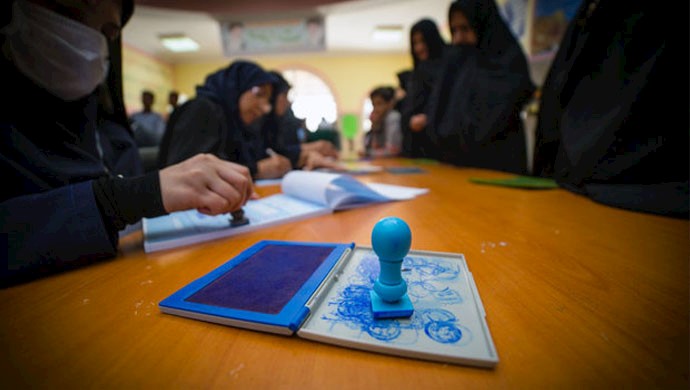Reporting by PMOI/MEK
Iran, February 10, 2020—As the February 21 parliamentary election closes in, regime officials continue to reveal new aspects of corruption and bribery in the elections process. These revelations, which usually crop up as a result of disputes and rivalries between members of different ruling factions, shed light on the corruption that plagues the regime in its entirety.
Mostafa Mirsalim, member of the Expediency Council, said, “In some provinces, they pay the people to buy their votes… today, in some districts, we are seeing strategic corruption, which means it’s corruption that is the root of other corruption.”
On the other hand, the Friday prayer leader of Kian, Charmahal and Bakhtiari province, confessed that the people are tired of the lies and corruption of the regime. “Why are they lying?” the Friday prayer leader said in a miserable attempt to extricate himself from the crimes of the regime. “The people are really tired of lies, they’re tired of these things they are seeing. Nepotism has soared to an alarming level. MPs use their power to help their families. When they reach their post, they will give privileges to their family members. Their cousins become important people, their brothers gain authority.”
This is the latest in a string of revelations and confessions to corruption in the elections process. Iranian regime MP Mahmoud Sadeghi revealed new aspects of bribery and collusion in the vetting process of Majlis candidates last week, tweeting, “In this round of elections middlemen have on some occasions demanded up to 40 billion rials (about $300,000) [to ensure the candidate is] approved. What a parliament it is going to be!”
Other officials have explicitly said that the elections are a sham and that the results have been “engineered” in advance. One media outlet that is close to regime president Hassan Rouhani wrote, “The outcome of the vote for 160 seats in the Majlis (parliament) has been predefined and there’s no competition, not even between the principalists. In 70 other seats, there will be a very weak competition.”
And the former head of Iran's Drug Control Headquarters (DCH), Ali Hashemi, has confirmed that "dirty money" has had a role in deciding the country's parliamentary elections. Dirty money refers to money collected in the narcotics market and drug smuggling that resurfaces on the political stage, through financial support to candidates, and for urging members of parliament to endorse some particular bills and motions.
Fear of general boycott of the elections
Regime officials are also afraid of the public boycotting the sham parliamentary elections. State-run media outlets are also warning of the explosion of public outrage. Jahan-e Sanat, close to regime president Hassan Rouhani, warned that infighting between regime factions can “cause a low voter turnout.”
Rouhani cannot stop Khamenei from disqualifying his candidates, and Khamenei cannot bring about a single-faction parliament under his complete control. The real winner of the regime’s election crisis is the Iranian people.#Iranhttps://t.co/ejWzlaDRsE
— People's Mojahedin Organization of Iran (PMOI/MEK) (@Mojahedineng) January 29, 2020
Arman Daily alluded to the November uprisings and wrote, “The Majlis elections are taking place while there’s a likely chance that a single faction will take control of the parliament seats… It seems that none of the recommendations that were issued after the November [protests] have been given minimal attention.”
Ebtekar warned, “Recent events show that the Iranian society has chosen to have a ‘silent election,’ and this will have very grave consequences.”
Meanwhile, one of the representatives of regime supreme leader Ali Khamenei threatened that “Anyone who undermines the voter turnout or discourages the people in his writing and speech is a traitor.”
His comments echoed those of Ebrahim Raisi, the head of the regime’s judiciary, who said last week, “Anyone who questions the elections is on the enemy’s side.”





